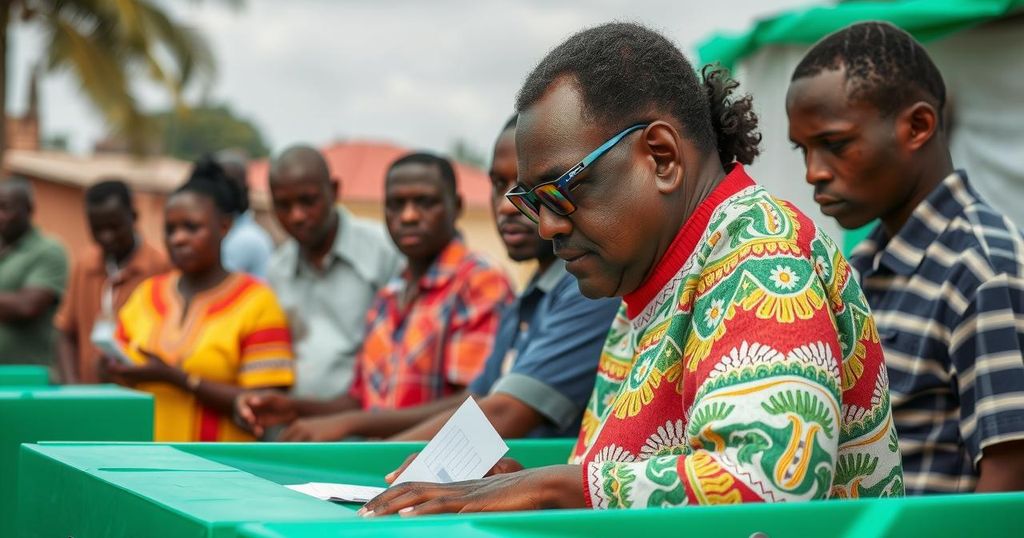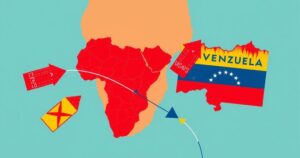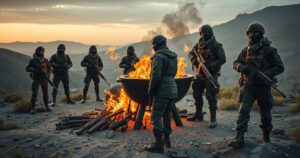Ghana Elections Amidst Economic Crisis: A Democratic Test

Ghana’s presidential and legislative elections are taking place amid profound economic distress, with 18.7 million registered voters facing a choice between candidates who have struggled to present viable solutions. Vice President Mahamudu Bawumia leads the ruling NPP, while former President John Mahama represents the NDC. The ongoing economic crisis, marked by high inflation and job losses, raises questions about the nation’s political future.
On Saturday, Ghana commenced its presidential and legislative elections, marking a significant point for democracy in a region grappling with political instability and violence. Approximately 18.7 million citizens are registered to cast their votes amidst a severe economic crisis that has beset the nation. While Ghana was once regarded as a beacon of democratic principles in West Africa, its recent economic difficulties, including rampant inflation and rising unemployment, have overshadowed its democratic achievements.
Historically celebrated for its democratic elections, Ghana now faces growing disenchantment among its populace; an Afrobarometer poll revealed that 82% of Ghanaians believe the nation is heading in the wrong direction. Despite twelve candidates vying for the presidency, the election has largely narrowed down to a two-party contest between Vice President Mahamudu Bawumia and former President John Dramani Mahama. Bawumia, representing the ruling New Patriotic Party (NPP), faces scrutiny for the government’s handling of the economic crisis, while Mahama, leader of the National Democratic Congress (NDC), was ousted in 2016 due to unmet economic promises.
The political landscape presents both major parties as offering similar strategies despite their ideological labels—NPP as center-right and NDC as social democratic. On the parliamentary front, 276 members will be elected, with current representation split evenly between NPP and NDC. In their last campaign push, Bawumia committed to continuing the economic stabilization efforts of the current administration, whereas Mahama vowed to “reset” various aspects of Ghanaian governance and society.
While the election atmosphere in the capital, Accra, is vibrant, concerns regarding the economy remain predominant. The country defaulted on foreign debts recently, resulting in soaring prices for fuel and essentials; inflation had reached 54% at the end of the last year. Additionally, illegal gold mining, or “galamsey,” has escalated as citizens seek employment amidst economic decline, raising environmental concerns that have garnered public attention and protests against the ruling government. Ghana is Africa’s leading gold producer, yet illegal mining operations have led to significant ecological damage, intensifying challenges for the government to manage both economic recovery and environmental sustainability.
The elections in Ghana occur within a complex context marked by an economic downturn that has affected public sentiment and political engagement. Historically seen as a model of democracy in West Africa, the country’s recent struggles with inflation, job scarcity, and governance have raised critical questions about the effectiveness of its political systems and the ability of its leaders to deliver tangible improvements. As public expectations rise amidst deteriorating economic conditions, the 2024 elections are especially significant for the future trajectory of Ghanaian democracy and stability.
In conclusion, Ghana’s elections represent a critical juncture as citizens seek solutions to an economic crisis while placing their trust in political leaders. The contest between Bawumia and Mahama underscores the necessity for effective governance and economic strategy amidst increasing dissatisfaction. Furthermore, issues such as illegal gold mining indicate that voters desire not only economic recovery but also sustainable practices to protect their environment. The overall outcome will determine whether Ghana can reaffirm its commitment to democracy and economic stability in the years to come.
Original Source: www.voanews.com





